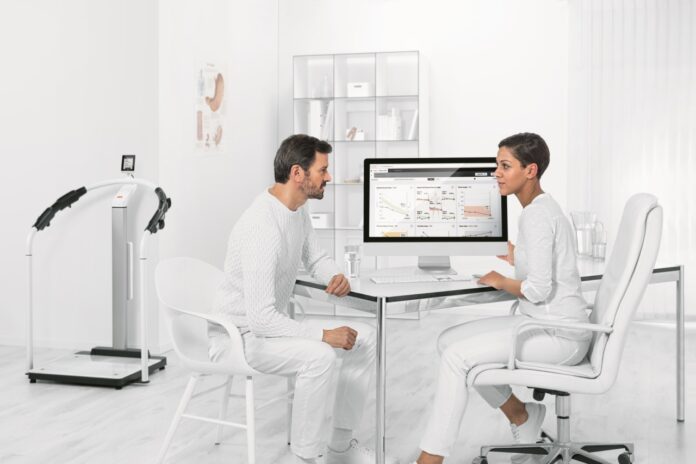We are witnessing a shift in medicine toward using innovative technology to enable prevention, maintain good health, provide more accurate diagnostics, and safer procedures. Also, these investments are expected to reduce the number of hospitalizations and the costs involved.
The healthcare system is rapidly evolving, and the digital transformation that will change the way the patients are treated is already here! Let’s take a look at six significant tech trends that will transform medicine as we know it.
Augmented reality and virtual reality in healthcare
AR and VR are expected to enable significant advances in healthcare. These digital technologies promise to allow medical experts to observe organs through high-definition visuals or in a 3D format, making accurately diagnosing the symptoms possible. They’ll be able to zoom in on problem areas. When it comes to surgery, augmented reality surgical navigation tools, such as the ones developed by https://www.novarad.net/, are used during complicated procedures. Superimposed 2D and 3D images over the patient’s body provide the surgeon with a roadmap to ensure higher precision and accuracy.
VR has the potential to assist in training clinicians via simulation, and also educate the patients. Simulated environments can help in coping with stress, PTSD, foster improvement in motor deficiencies (e.g., following a stroke), and even help fight memory loss.
Blockchain and data security
Blockchain technology is expected to improve the security and privacy in the healthcare system through a decentralized list of records linked through cryptography. Unfortunately, data breaches are not uncommon in this industry, so the integration of blockchain in healthcare is a step towards preventing hackers from stealing patient information.
These systems will protect patient data with passwords, with patients themselves granting access to their records when needed. Also, imagine you have traveled to another country and need a health intervention immediately. Blockchain could provide doctors fast access to your medical record.
Energy-efficient lighting technology
Energy costs for healthcare facilities can be high, so many hospitals and other healthcare institutions have already switched to LED technologies in order to improve efficiency and reduce the energy bills. Advancements in LED lighting technologies have allowed more than just energy savings (by up to 70 percent). Specialized lighting for clean room spaces makes difficult and delicate visual tasks easier for the medical staff to perform by providing excellent illumination. Also, LEDs have a longer lifespan and don’t require an expensive recycling process, thus reducing maintenance costs.
Artificial intelligence in healthcare
AI, along with machine learning, is a life-changing 200-billion-dollar industry that can transform the lives of millions of patients. It can improve and monitor their health by diagnosing diseases and treating people. Artificial intelligence will be invaluable in conducting medical research and monitoring and predicting epidemic outbreaks. It is even predicted that clinical AI will be able to provide cognitive behavioral therapy.
It is expected that this innovative technology will dramatically change the healthcare industry in the next ten years. And by 2035, autonomous AI will start replacing human doctors.
The internet of medical things (IoMT)
The IoMT consists of connected medical devices, sensors, and software applications that have a critical role in testing, monitoring, and diagnostics. Wearable medical devices like smartwatches or smartphones with health-related mobile apps can track and prevent disease, allowing patients to get health updates more frequently. This is especially important when it comes to high-risk patients so that MDs can have real-time health monitoring. There are various smart devices like EKG monitors, ECG, smart beds, and many more that can provide better health outcomes to patients.
Chatbots
Although chatbots have been initially invented for the business world, they have found their use within the healthcare system. They can deal with routine inquiries, allowing professionals to focus on more complex matters where their full attention is required. The healthcare chatbots could track patient health and analyze the data, enabling clinicians to focus on diagnostics and treatment.
Chatbots can also serve as assistants to the older people and provide timely reminders. Soon, we can even expect to see a humanized version of chatbots expressing feelings and empathy, which could allow the chatbot to assess the patient’s mood along with the other symptoms.
The potential of the newest health technologies is enormous. With the right tools and investments, we can expect improved accuracy, better treatment decisions, security, and timely predictions.








![Avast Driver Updater Key 2022 | Activation Key V2.5.9 [Free]- Avast Driver Updater Key 2021](https://vintank.com/wp-content/uploads/2021/02/Avast-Driver-Updater-Key-2021-100x70.jpg)
![Avast Premier Activation Code and License Key [Working] Avast Premier Activation Code and License Key](https://vintank.com/wp-content/uploads/2021/09/Avast-Premier-Activation-Code-and-License-Key-100x70.jpg)
